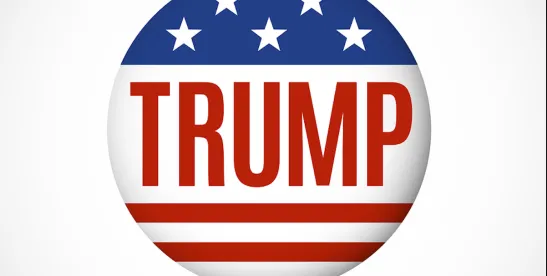In less than two months, Donald Trump will be sworn in as the 47th President of the United States. President-elect Trump has already announced that he will nominate Republican Congresswoman Lori Chavez-DeRemer as his pick to serve as the next Secretary of the Department of Labor (“DOL”). It remains to be seen if the Trump DOL will continue the current administration’s targeting of the healthcare industry.
Indeed, the DOL under President Biden had a busy year with a sharp focus to target the healthcare industry. The DOL issued a dozen press releases from Memorial Day to Labor Day alone relating to settlements with or judgments against various healthcare entities. The settlements and judgments range from five-figure amounts to $36 million.
The Department of Labor’s tenacity in pursuing potential wage and hour violators in the healthcare industry is spotlighted by a recent judgment against a group of nursing facilities in Pennsylvania. Following an investigation, the DOL brought suit against the owners of 15 healthcare facilities alleging the employers failed to properly pay overtime. After a 13-day trial involving nearly 50 witnesses, a federal court awarded $35.8 million in overtime backpay and liquidated damages to 6,000 current and former workers employed by residential skilled nursing, rehabilitation, and assisted living facilities in the Keystone State. The court found that the employers of these facilities engaged in actionable wrongdoing by: (i) willfully failing to pay employees for all hours worked, including work done during meal breaks; (ii) failing to incorporate all promised compensation, including non-discretionary bonuses and shift differentials, when calculating overtime pay; (iii) avoiding paying overtime by incorrectly treating employees as exempt from the act’s overtime requirements; and (iv) not keeping accurate records of hours employees worked and compensation due for those hours. These wage and hour issues are generally avoidable by implementing best practices and compliance protocols.
The DOL’s busy year thus far is a cautionary tale to employers in the healthcare industry. While the jury is still out on whether the incoming administration will continue to tighten the screws on the healthcare industry, implementing the right protocols and procedures will ensure that no matter which party is in power, there is minimal risk of adverse findings in an investigation. Best practice dictates that all employers should assess and audit their wage and hour practices, including (i) ensuring that employees who are exempt from overtime pay are properly classified as such under applicable federal and state law; (ii) ensuring that independent contractors are properly classified as such under applicable federal and state law; (iii) ensuring that non-discretionary bonuses and other applicable compensation are included in the calculation of the regular rate of pay for overtime purposes for non-exempt employees; and (iv) ensuring compliance with applicable meal period and rest break laws. Employers in the healthcare industry need to be prepared in the event of a Department of Labor audit. Working with outside counsel to ensure proper compliance with the various federal and state wage and hour laws mitigates the risk of a lawsuit and potential damages.



 />i
/>i
